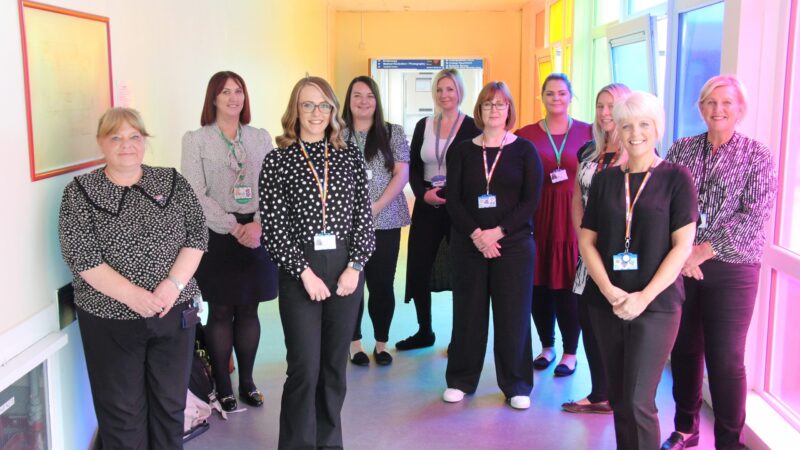
Our cancer care coordinator role is improving the journey of cancer patients from the very day they receive their diagnosis.
The newly-appointed cancer care coordinators at North Tees and Hartlepool NHS Foundation Trust offer patients extra support from the offset. The early intervention is aimed at reducing anxiety, improving outcomes and reducing hospital admissions.
The coordinators build a relationship with the patients, acting as their first point of contact.
They also offer health and wellbeing advice based on the patients’ own needs, lifestyle and circumstances to make sure they are in the best possible physical condition before receiving cancer treatment – whether that is surgery, chemotherapy or a combination of the two.
Meet colorectal cancer care coordinator Bethany

Bethany Graham is a colorectal cancer care coordinator. She said: “If a colorectal cancer patient needs anything, I’m there to help them as much as I can.
“I enjoy being able to just be that emotional support for them. Even if that’s simply being on the other end of the phone.”
Each care coordinator works within a specialty cancer department. Once a patient receives a diagnosis, the coordinator will carry out a holistic needs assessment (HNA) via telephone appointment.
This highlights any issues or care needs early on, meaning that patients will have access and early referrals to any other services or support they need. Coordinators walk alongside patients during their cancer journey to make sure their changing needs are met.
Urology cancer care coordinator Rebecca

Rebecca McKenna is the cancer care coordinator in urology, said: “The patients know they can ring me and however big or small the problem is, I can get them the help they need.”
The coordinators support not only the patients, but clinical staff working in the Trust’s cancer departments as well by taking on some of the more time-consuming tasks.
Rebecca continued: “Simply by taking on an administrative and patient support role, I help to take some of the pressure off the specialist nurses. It means they have more time to carry out their clinical duties.”
The coordinators act as a support for stratified follow-up, ensuring that patients are involved in the decision-making process and enabling them to take control of their care. This means less time in hospital and more freedom and independence.
“Patients are already seeing the benefits”
Kendra Powell is the Trust’s Macmillan lead cancer nurse. She said: “Just eight weeks in, the team are already doing a fantastic job and patients are already seeing the benefits of the role.
“Each cancer care coordinator has the time needed to build a rapport with each patient. They get to know their individual needs and become their first point of contact at the Trust.
“Having cancer can feel very confusing and isolating – especially with the added impact of COVID-19. Our hope is that this role will help combat that and make the patients’ lives a little easier.”